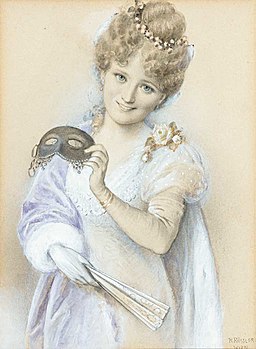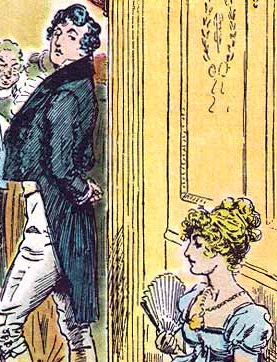No, I’m not laying aside the niqab (I never took it up), but I have long been in the habit of keeping my face off the great interwebs. Even back in the day when I had a Facebook account (which I closed around the time I started this blog) I didn’t show my face in my profile photo. (Faceless-book?)

It has just occurred to me that I could have asked, for this week’s question, what you imagine I look like. And then I remembered that the vast majority of the blog’s followers at this new address are people who know me in real life anyway, and therefore they wouldn’t have to imagine.
But! “I would by no means suspend any pleasure of yours,” as Mr Darcy said when Elizabeth Bennet pointed out that “if I do not take your likeness now, I may never have another opportunity.”

Those of you who know me by sight already are welcome to essay a word-portrait in the comments, should you so wish, and those of you who don’t are welcome to resort to your imaginations to furnish you with material for one.
And then you are all most welcome to visit the About page (in menu above, or click here) to see the portrait which Esther Van Kuyk has created of my very own face – positively its first appearance on this or any site!
What do you think? I like it very much, myself. Especially the eyes. I know they don’t look like they’re pointing in quite the same direction – that’s because my eyes don’t, and I particularly requested Esther to retain that quirk of appearance. One eye is looking at you, and the other… well, to be honest, the other is probably secretly reading a book. Tolle Et Lege, after all.


